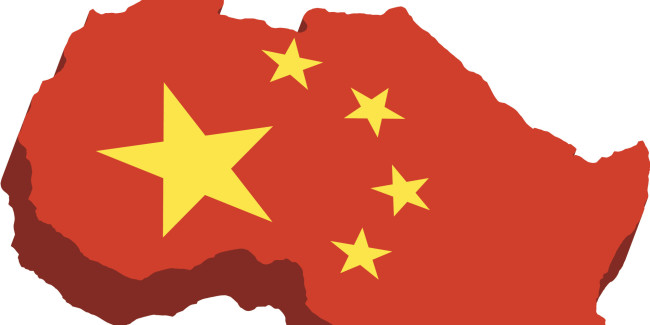Africa to focus on China debt at Jo’burg summit as commodities slump

By Reuters
Some African countries may seek to renegotiate repayment of existing debts to China as a way of helping their economies hit by lower crude and commodity prices, but will not turn down offers of new loans by the Asian giant at a summit this week.
African countries will also seek more Chinese investment in factories manufacturing goods for export in addition to roads and railways on a continent long seen as a major commodities and energy source for China.
Chinese state-owned firms in Africa face criticism for using Chinese labour to build government-funded projects like roads and hospitals, while pumping out resources and leaving little for local economies, an image Beijing wants to change at the Forum on China-Africa Cooperation in Johannesburg on Dec. 3-4.
China President Xi Jinping visits Zimbabwe on Dec. 1-2 and South Africa on Dec. 2-3, before co-chairing the conference in Africa’s most industrialised economy which several African heads of state are expected to attend.
Experts are confidently expecting China to push ahead with new loan and trade proposals for the continent despite its own slowing economy.
“Key themes for Africa will be Africa’s growing debt to China (and) how China’s domestic stimulus can re-ignite commodity demand to help pay off the loans and industrialisation of the continent,” said Martyn Davies, Managing Director for Emerging Markets & Africa at Deloitte.
“Real development is driven not by another $10 billion loan pledge, but by African economies institutionalising intellectual property and not just investment in mines and roads.”
China is Africa’s largest trading partner and the trade volume between them amounted to $220 billion in 2014, according to China state news agency Xinhua. Its investments in Africa amounted to $32.4 billion at the end of 2014, according to London-based BMI Research.
It has offered loans totalling $32 billion to African nations in the past two years but there is concern that the continent is not benefiting from developing skills or technology from the Asian economic giant, despite its pledges to train thousands of African students and increase technology transfer.
Zhang Ming, a Chinese vice foreign minister, said last week that Beijing would continue to provide support and loans to the continent which supplies oil and raw materials such as copper and uranium to the world’s second-largest economy.
Africans broadly see China as a healthy counterbalance to Western influence though Western governments charge China of turning a blind eye to conflicts and rights abuses on the continent as they pursue trade and aid policies there.
DEEPER INTO DEBT
“He will not be coming unless they are going to announce a big deal. But you still have to pay for it and it will lead Zimbabwe deeper into a debt crisis,” Antony Hawkins, economics professor at University of Zimbabwe’s Graduate School of Management said, referring to Xi.
Deloitte’s Davies said African countries could push for loan moratoriums following weak metal and crude prices that have weakened their currencies. From Nigeria in the west to Zambia in the south, currencies have all fallen sharply to the dollar.
“China’s loans are often linked to commodity arrangements. Now that commodity prices have fallen, how will the loans be restructured ?” he said. “These talks are likely to be bilateral and not at the plenary sessions.”
Some also see China’s future investment tone changing.
Its investments on the continent range from Zambian power plants, Egyptian trade deals, cobalt mines in Congo, rail links in East Africa and infrastructure in Equatorial Guinea.
But China’s direct investment in Africa has fallen roughly 40 percent in the first half of 2015 to $1.19 billion, China’s commerce ministry said on Nov. 17.
“China is reaching a mature phase of its investment cycle in Africa,” Francesca Beausang, head of Africa Research at BMI Research said in a note. “Our infrastructure team’s long-standing view is that China will refocus infrastructure investment away from Africa toward developed markets.”